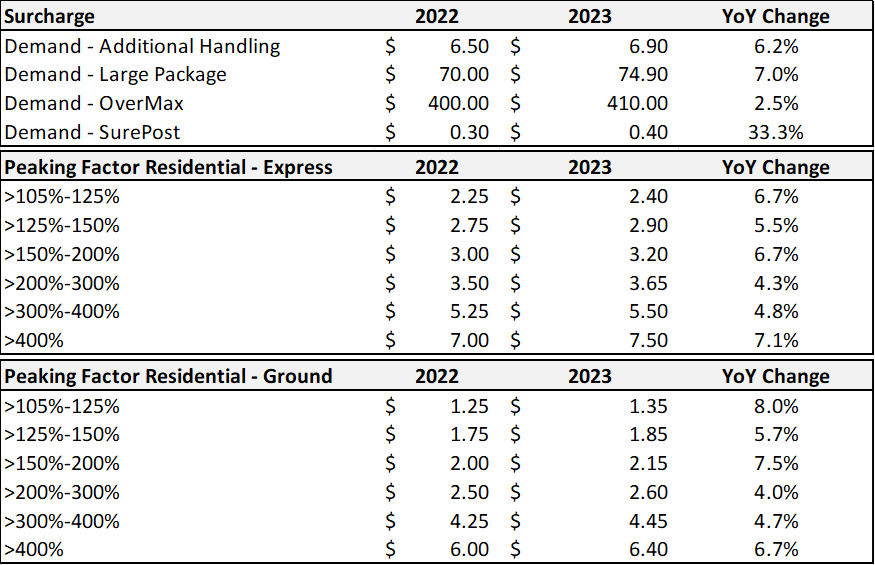UPS has announced its annual Demand (a.k.a. Peak) Surcharges that will extend into January 2024.
You can read the full announcement on the carrier’s website: here.
The following are some key highlights:
- UPS, unlike FedEx, has kept demand surcharges in effect on Additional Handling Surcharges, Large Package Surcharges, and Overmax Limits Surcharges since 2022 – and is now increasing those fees during Q4 of 2023 by an average of 7%.
- International per-pound demand surcharges remain in effect (as they have been since April 2020).
- Residential Demand “Peaking” Surcharges are again in place for Q4, with an average increase of 6% over 2022 rates.
Illustration – All Charges YoY Changes
In a predictable fashion, UPS is increasing all of its demand surcharges for the third year in a row. The average increase is 7.5% based on the combined Residential Peaking and ‘bulky’ surcharges.
Interestingly, shippers with the lowest surge (105% to 125% Peaking Factor) in volume over their June 2023 “Baseline” will experience the highest cost increase for Ground – at 8.0%.
Since 2022, the threshold for the qualifying “high-volume” Peaking Factors has been 20,000 packages compared to 25,000 in 2021. This means any shipper who processed more than 20,000 packages during any week since October 2022 is now eligible for Residential Demand Surcharges calculated from their June 2023 baseline levels.

What to do next?
UPS has not announced a continuation of its 2024 Demand Surcharge, which is set to expire at the end of this year. Considering UPS appears to be in a position of needing to drive additional revenue per piece, we expect the extra fee will be extended, keeping Demand Surcharges in place for all of 2024 as they were for 2022 and 2023.
Shippers should also plan for surges in demand to avoid the more costly peak weeks, such as right after Cyber Monday. A data-driven approach to parcel management is an effective way to anticipate when your costs will be most impacted by these seasonal surcharges.


